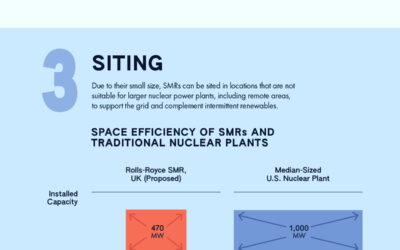What comes to mind when hearing the word ‘conflict’? Do you feel uncomfortable, frustrated, or uneasy? There are a variety of possibilities, but more often than not, there is a negative connotation associated with this word. As a result, conflict is often avoided when possible.
In the Ted Talk “Dare to Disagree”, Margaret Heffernan describes a story of a female doctor in the 1950’s by the name of Alice Stewart. Stewart was interested in epidemiology, the study of detecting patterns in diseases. She used her interest in this study to conduct research in hopes of gaining popularity in the medical field. At the same time, there was an unexplainable increase in the cases of pediatric cancer. Stewart studied this trend and found that despite the fact diseases were generally correlated with poverty, this wasn’t the case. Ironically, the cases of childhood cancer were mostly found in families coming from wealth. Stewart’s research ended up pointing in only one direction. “By a rate of two to one, the children who had died had had mothers who had been X-rayed when pregnant” (Heffernan). Without any delay, Stewart quickly published research with all the evidence necessary, but nothing was done until 25 years later. The real question here is why?
Stewart’s research conflicted with conventional wisdom, the new technology of the time (the X-ray Machine), and with medical professionals–“the people that are supposed to be helping the patients, not harming them” (Heffernan). Ignorance is not always bliss–as a result of avoiding conflict, one child was dying per week but nothing was changed until years later.
Even in life threatening cases like Alice Stewart, most people choose to avoid conflict. This is due to our natural tendency as humans to be around others and situations that are similar to us. As a result, we tend to stay clear of people, environments, ideologies, etc. that are different from our “normal”. This results in less diversity of thought and challenging the status quo even when it’s necessary. The outcome of this behavior can grow exponentially in an organizational level; employees often feel hesitant to bring new ideas to the table that conflict with the majority because of the fear that their idea will be unsupported. Additionally, as humans we strive to be accepted. Offering different opinions, alternative viewpoints, and critiques that conflict with the popular opinion can be discouraged by our manager or peers.
Many benefits have been discovered in accepting conflict. According to the conflict engagement practitioner, consultant, and trainer Kari Boyle, here are the top 5:
- Earlier Problem Identification
- Conflict helps uncover problems that need to be addressed as well as practices and processes that need to be improved or replaced. Additionally, exposing conflict and uncovering these problems quickly can help prevent them from causing more damage down the road.
- Better Problem Solving
- The best discussions involve conflicting opinions because they bring a variety of different perspectives, ideas, and suggestions.
- Healthy Relationships, Morale, and Commitment
- Suppressing conflict hurts relationships; humans naturally form assumptions about other people that aren’t always correct–if these assumptions remain unsurfaced, the relationships may stay undeveloped or spiral downwards. On the contrary, relationships are strengthened if they feel their voice is heard by their peers.
- Improved Productivity
- When conflict is initially uncovered, it seemingly takes time away from other objectives. The truth is that after conflict is acknowledged and taken care of, tension and other distractions are liberated allowing people to spend their full focus on other aspirations.
- Personal Growth and Insight
- Difficult conversations force us to learn not only about the people around us, but more importantly, ourselves. During these discussions, we are given insight on what we truly care about and why we feel the things we do. “Self-awareness is the first step to managing ourselves better in the future” (Boyle).
It is crucial to not only accept conflict, but encourage it. Patty McCord, former head of talent at Netflix, brought an interesting perspective and claimed that healthy conflict was critical to Netflix’s success in their streaming service. In her book Powerful, she said, “Our Netflix executive team was fierce. We were combative in that beautiful, intellectual way where you argue to tease out someone’s viewpoint because although you don’t agree, you think the other person is really smart so you want to understand why they think what they think” (McCord). Conflict typically begins with the notion that your idea is right; however, after talking with someone who you respect, it’s only then that you are more willing to open up your thoughts on the idea, and even more willing to get proved wrong. In retrospect, if this sparks a fruitful conversation where others open up about their ideas, that really isn’t such a bad thing! In order for this to happen, the conflict has to be acknowledged in the first place. It’s easy to default to why fix what’s not broken?–by doing the work of supporting conflict we bring about changes that not only make it easier for ourselves at the end of the day, but make us happier. Accepting conflict can diversify our thoughts and promote healthy change in the workplace that may ultimately lead to driving your business forward in a way that you didn’t know was possible.
Citations
“6 Symptoms of Groupthink in the Workplace.” Indeed Career Guide, 2020, www.indeed.com/career-advice/career-development/groupthink-in-workplace.
Campbell, Sherrie. “The 10 Benefits of Conflict.” Entrepreneur, 28 July 2016, www.entrepreneur.com/article/279778.
Ellis, Colin D. “How To Encourage Healthy Conflict At Work.” The Enterprisers Project, 2018.
Heffernan, Margaret. “Dare to Disagree.” Margaret Heffernan: Dare to Disagree | TED Talk, Ted Talk, 2012, www.ted.com/talks/margaret_heffernan_dare_to_disagree?language=en.



